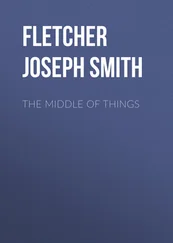SALOMÃO WALKED ON THE PATH that went from the farmstead to the pasture where José tended the sheep. Behind him lay the road from the town to the farmstead, weariness, the sun. With him went the memory of what he’d heard the night before, fear, weariness, the sun. Salomão walked, and in his face another face frowned, in his fear another fear lurked, in himself there was another. He carried a burden. He walked and the silence became an ever-heavier, ever-closer silence, a silence that kept repeating words, repeating to him the same words over and over. Last night. The words from last night. Words. Night, last night. Words. Words. Words. Everything blended into a whirl of confusion in his head. Everything combined and confronted him in a storm of transfiguring mirrors. Salomão walked and did not understand. He hurried. He stopped. He hurried. And the voices all whirling in his head. Last night. Words words words.
Salomão was the son of José’s father’s sister. Salomão was older than his cousin José, but he never acted like it. They played together as children, and it was always José who led their games, who decided what they should do and where they should go. José liked to climb trees, but Salomão was afraid; José liked to play hide-and-seek, but it frightened Salomão to be alone; José liked to play tag, but Salomão could never catch him. When Salomão talked about José, he called him cousin; when José talked about Salomão, he called him Salomão.
Once past the farmstead, when he saw the last summit and knew that José and the sheep were on the other side, he hastened his step, running awkwardly, like someone with a limp, like a limping child.
I THINK: PERHAPS THE SKY is a huge sea of fresh water and we, instead of walking under it, walk on top of it; perhaps we see everything upside down and the earth is a kind of sky, so that when we die, when we die, we fall and sink into the sky.
THE TWILIGHT PAUSED. The last remnants of afternoon, a peaceful canticle, stood still. The last light of day glowed hard and fast. The birds’ singing lapsed into a cruel melody of silence. The breeze halted, still cool. Salomão slowly came into view on the summit, as if climbing a set of stairs: his head, his chest, waist, legs. José watched him. When at last the whole of him appeared, Salomão began running with clumsy steps, not stumbling but as if he were stumbling, as if he were very fat. Nearing José, he slowed down and they clearly saw each other’s face. Salomão said is it true, José? A moment went by, and José did not look at him. Salomão relaxed his face, as if it had been greatly straining, and told what had happened the night before. The words. José listened. Finally, with night still on the far side of that splendorous glowing, Salomão said it’s not true, is it? I know it’s not. Salomão looked at him with a look that was a manly embrace. And he left. He vanished behind the summit in the direction of the homestead. José looked at the sky. The birds’ singing resumed its mysterious symmetry. The breeze resumed its dry, torrid substance. The afternoon lingered enough to be crossed by a swallow. And the night fell.
THE MORNING ENTERED through the open windows, filling up the whole kitchen. Salomão’s wife bustled about the dining table, rushed out to the yard to check on her mother, went to the stove to stir the soup, then back to the table. Salomão woke up late. He left without drinking any coffee, since there was no coffee to drink. He said see you later, and his wife, awake since the first sounds of morning, had already bathed her mother, scrubbed the floor, washed a tub of laundry, and started the soup. Without thinking of José, Salomão ran through the streets as if his boots were very heavy or very large. When he entered Master Rafael’s carpentry shop, he automatically took off his cap and waited. Master Rafael looked at him indifferently, grabbed the pencil from behind his ear, and drew two lines on a board. The first words he said were bring me the chisel and give me a hand here. Salomão put his cap back on and made haste.
The shop wasn’t very big for two carpenters and an apprentice. There was a small lumberyard, full of piled-up boards and with pine chips carpeting the ground. Mornings in the yard were a beautiful sight. The sunlight flowed like liquid, softly, without ever scorching; it passed through the grass that sprouted from under the pine chips, and this was soothing. Afternoons were arduous. The same sun was different, beating down on the men’s naked backs as they sawed. The sweat seethed on their skin. In the shop itself there were two carpenter’s benches and a table in the middle. Master Rafael’s bench was neat and clean; his tools were in his toolbox, each one in its place and everything in order. Salomão’s bench was cluttered and covered with shavings and sawdust; his tools were wherever he’d left them last, everything a mess. The table in the middle, full of slits for the saws, unintentional holes made by drills or by nails, and dents from straying hammers, was used by both of them to work on larger pieces. In one corner, next to the earthen jug with streaks of lime running down the neck, there were two shelves crammed with boxes of nails, and although nothing was written on them, Master Rafael would say give me two eightpenny nails, or give me three finishing nails, or give me three tenpenny ribbed nails, and Salomão knew exactly which ones they were, he’d hand them over, and this was all natural. But that morning there was no whistling, no conversation. They worked in silence.
It was close to lunch hour when Master Rafael said to the apprentice you can go to lunch. Taking one step with his crutch and another with his leg, he turned to Salomão. It was from his father that Master Rafael had inherited the carpenter’s shop, along with his stiff manners and sincerity of feelings. His father had taught him all he knew, about wood and about everything else. He lived in the small house that had been his father’s. And all the jobs he completed, with Saturdays and Sundays likewise spent in the shop, earned him only enough for his sustenance and a fortnightly visit to the house of the blind prostitute. There were several other carpenters in the town, but no one knew as much about his trade as Master Rafael. His father had taught him everything. He was born the day his mother died and, although he did not know it, his father had looked at him with watery eyes and said I’m going to make you into a man. Master Rafael’s right leg ended right below the groin, his right arm was just a stump into which the top of his crutch fit snugly, he was missing his right ear and was blind in his right eye. He was a man. At ten years of age, he helped his father in the carpenter’s shop like a grown-up. His father beamed with pride. He smiled. His father died on the day he saw his son turn into a man. And now, on that morning, he hobbled through the wood shavings toward Salomão and said what’s the matter? Salomão didn’t answer right away but looked at him affectionately and finally said it’s all taken care of.
THE MORNING ENTERS THROUGH THE OPEN WINDOWS, filling up the whole kitchen. The soup is done, I take it off the stove, and now I feel like resting. Salomão will enter by that door over there. Maybe he’ll look at me. He won’t say a word, for we’ve never talked, and now it’s too late. He’ll crumble crusts of bread into his bowl, cover them with soup, and eat in silence, looking at the table. That’s when I’ll go out to the yard. I’ll pull my mother into a corner, tuck a bib into her collar, and feed her spoonfuls of soup as she blankly gazes with her doll-like eyes. With the edge of the spoon I’ll catch the broth that drips down her chin, mixed with saliva, and stick it back into her mouth with the next spoonful. My mother will swallow the soup without tasting it, since she’ll never stop mumbling the words she’s been repeating for thirty years. And the words will make bubbles of soup at the corners of her mouth, and sometimes she’ll choke.
Читать дальше












